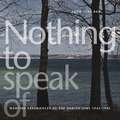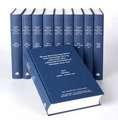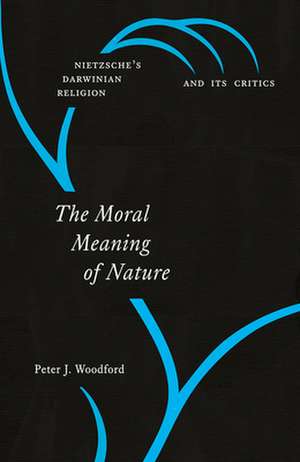The Moral Meaning of Nature: Nietzsche’s Darwinian Religion and Its Critics: Emersion: Emergent Village resources for communities of faith
Autor Peter J. Woodforden Limba Engleză Hardback – 11 iun 2018
What, if anything, does biological evolution tell us about the nature of religion, ethical values, or even the meaning and purpose of life? The Moral Meaning of Nature sheds new light on these enduring questions by examining the significance of an earlier—and unjustly neglected—discussion of Darwin in late nineteenth-century Germany.
We start with Friedrich Nietzsche, whose writings staged one of the first confrontations with the Christian tradition using the resources of Darwinian thought. The lebensphilosophie, or “life-philosophy,” that arose from his engagement with evolutionary ideas drew responses from other influential thinkers, including Franz Overbeck, Georg Simmel, and Heinrich Rickert. These critics all offered cogent challenges to Nietzsche’s appropriation of the newly transforming biological sciences, his negotiation between science and religion, and his interpretation of the implications of Darwinian thought. They also each proposed alternative ways of making sense of Nietzsche’s unique question concerning the meaning of biological evolution “for life.” At the heart of the discussion were debates about the relation of facts and values, the place of divine purpose in the understanding of nonhuman and human agency, the concept of life, and the question of whether the sciences could offer resources to satisfy the human urge to discover sources of value in biological processes. The Moral Meaning of Nature focuses on the historical background of these questions, exposing the complex ways in which they recur in contemporary philosophical debate.
We start with Friedrich Nietzsche, whose writings staged one of the first confrontations with the Christian tradition using the resources of Darwinian thought. The lebensphilosophie, or “life-philosophy,” that arose from his engagement with evolutionary ideas drew responses from other influential thinkers, including Franz Overbeck, Georg Simmel, and Heinrich Rickert. These critics all offered cogent challenges to Nietzsche’s appropriation of the newly transforming biological sciences, his negotiation between science and religion, and his interpretation of the implications of Darwinian thought. They also each proposed alternative ways of making sense of Nietzsche’s unique question concerning the meaning of biological evolution “for life.” At the heart of the discussion were debates about the relation of facts and values, the place of divine purpose in the understanding of nonhuman and human agency, the concept of life, and the question of whether the sciences could offer resources to satisfy the human urge to discover sources of value in biological processes. The Moral Meaning of Nature focuses on the historical background of these questions, exposing the complex ways in which they recur in contemporary philosophical debate.
Din seria Emersion: Emergent Village resources for communities of faith
-
 Preț: 144.99 lei
Preț: 144.99 lei - 9%
 Preț: 352.50 lei
Preț: 352.50 lei -
 Preț: 307.55 lei
Preț: 307.55 lei -
 Preț: 146.50 lei
Preț: 146.50 lei - 8%
 Preț: 360.28 lei
Preț: 360.28 lei -
 Preț: 185.37 lei
Preț: 185.37 lei -
 Preț: 183.89 lei
Preț: 183.89 lei -
 Preț: 115.53 lei
Preț: 115.53 lei - 6%
 Preț: 324.95 lei
Preț: 324.95 lei - 8%
 Preț: 346.31 lei
Preț: 346.31 lei -
 Preț: 67.35 lei
Preț: 67.35 lei -
 Preț: 101.43 lei
Preț: 101.43 lei -
 Preț: 216.90 lei
Preț: 216.90 lei - 18%
 Preț: 2261.34 lei
Preț: 2261.34 lei -
 Preț: 215.52 lei
Preț: 215.52 lei -
 Preț: 167.85 lei
Preț: 167.85 lei -
 Preț: 179.04 lei
Preț: 179.04 lei - 12%
 Preț: 290.56 lei
Preț: 290.56 lei -
 Preț: 156.84 lei
Preț: 156.84 lei - 9%
 Preț: 353.24 lei
Preț: 353.24 lei -
 Preț: 186.09 lei
Preț: 186.09 lei -
 Preț: 176.49 lei
Preț: 176.49 lei -
 Preț: 133.99 lei
Preț: 133.99 lei -
 Preț: 144.80 lei
Preț: 144.80 lei - 18%
 Preț: 348.59 lei
Preț: 348.59 lei -
 Preț: 138.26 lei
Preț: 138.26 lei -
 Preț: 163.52 lei
Preț: 163.52 lei - 18%
 Preț: 502.35 lei
Preț: 502.35 lei -
 Preț: 182.98 lei
Preț: 182.98 lei -
 Preț: 208.55 lei
Preț: 208.55 lei -
 Preț: 279.55 lei
Preț: 279.55 lei -
 Preț: 116.07 lei
Preț: 116.07 lei -
 Preț: 120.81 lei
Preț: 120.81 lei -
 Preț: 160.63 lei
Preț: 160.63 lei - 9%
 Preț: 352.77 lei
Preț: 352.77 lei -
 Preț: 106.35 lei
Preț: 106.35 lei -
 Preț: 273.93 lei
Preț: 273.93 lei -
 Preț: 316.40 lei
Preț: 316.40 lei -
 Preț: 548.71 lei
Preț: 548.71 lei -
 Preț: 138.81 lei
Preț: 138.81 lei -
 Preț: 152.25 lei
Preț: 152.25 lei -
 Preț: 229.92 lei
Preț: 229.92 lei -
 Preț: 94.22 lei
Preț: 94.22 lei -
 Preț: 203.53 lei
Preț: 203.53 lei -
 Preț: 145.41 lei
Preț: 145.41 lei - 8%
 Preț: 311.68 lei
Preț: 311.68 lei -
 Preț: 208.32 lei
Preț: 208.32 lei -
 Preț: 302.76 lei
Preț: 302.76 lei - 8%
 Preț: 565.01 lei
Preț: 565.01 lei
Preț: 563.24 lei
Preț vechi: 612.22 lei
-8% Nou
Puncte Express: 845
Preț estimativ în valută:
107.78€ • 117.44$ • 90.82£
107.78€ • 117.44$ • 90.82£
Carte disponibilă
Livrare economică 02-16 aprilie
Livrare express 18-22 martie pentru 28.46 lei
Preluare comenzi: 021 569.72.76
Specificații
ISBN-13: 9780226539751
ISBN-10: 022653975X
Pagini: 208
Dimensiuni: 152 x 229 x 18 mm
Greutate: 0.39 kg
Ediția:1
Editura: University of Chicago Press
Colecția University of Chicago Press
Seria Emersion: Emergent Village resources for communities of faith
ISBN-10: 022653975X
Pagini: 208
Dimensiuni: 152 x 229 x 18 mm
Greutate: 0.39 kg
Ediția:1
Editura: University of Chicago Press
Colecția University of Chicago Press
Seria Emersion: Emergent Village resources for communities of faith
Notă biografică
Peter J. Woodford is an Assistant Professor of Religion, Philosophy, and Science at Union College in Schenectady, NY. His research covers major thinkers and periods in the history of philosophical reflection on the relationship between science and religion, and he also works on current debates surrounding evolutionary explanations of both religion and morality. Before coming to Union, he received his Ph.D. in Religious Studies from Stanford University and completed an innovative 3-year postdoc at the University of Cambridge, where he was placed in a lab in the Department of Zoology with scientists researching the evolution of cooperation across species. While at Cambridge, his research focused on both tensions and possible points of reconciliation between scientific, philosophical, and humanistic approaches to religion and morality. He is currently the co-PI on a research project entitled “Is a Social Mind Aware of its 'Self?'” that will investigate the nature and possibility of self-awareness in social primates that do not pass the mirror test.
Recenzii
"There is much of value here. Deeply insightful is Woodford’s account of Nietzsche’s focus on power and how often that is the motivation behind moral codes and their enforcement. . . . Peter Woodford has written a most interesting work that is highly stimulating and that left one reviewer all ready for a (Darwinian?) fight. The best kind of book!"
"This is a fine book. Beginning with Nietzsche and proceeding through three of his important but under-studied followers, Woodford traces the fortunes of the notion that a broadly Darwinian understanding of life provides a basis for reflecting on what values truly inform human existence. If Nietzsche’s work inaugurated an important set of discussions in this area, Woodford demonstrates that neither his own conclusions nor his way of framing the matter dominated what we now refer to as the Lebensphilosophie movement. He also argues, convincingly, that the questions over which Nietzsche, Overbeck, Simmel, and Rickert argued have hardly been settled today. Expect a revival of interest in these figures, and in the idea of Lebensphilosophie in general, to follow from this work."
“In The Moral Meaning of Nature, Peter Woodford raises the question of the impact of naturalistic approaches to life on conceptions of value, science, and religion in the late nineteenth century, taking Friedrich Nietzsche as his point of departure. Woodford does an excellent job of showing how the concept of ‘life’ connects many strands of Nietzsche’s thought while also engaging a constellation of authors and their approaches, such as Overbeck and the study of religion, Simmel and the study of sociology, and Rickert and the neo-Kantian approach to values.”
"Woodford offers a compelling account of an extremely important problem of European philosophical thought that needs more attention than it tends to receive. His cogent summaries of Rickert’s work in particular are a valuable service, considering only Rickert’s work on the philosophy of history and historical sciences is very widely read in English."
